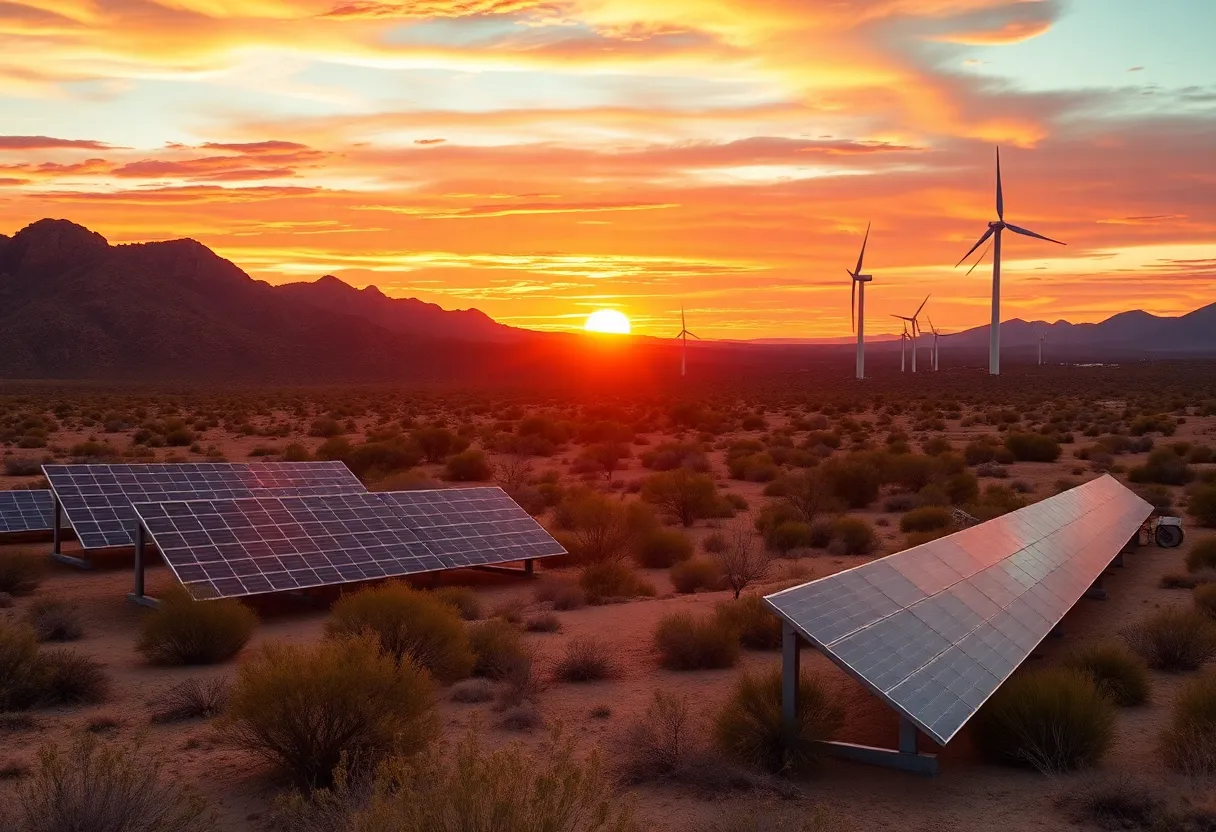News Summary
The Arizona Corporation Commission (ACC) has voted to begin the repeal of the Renewable Energy Standard and Tariff (REST) rules, raising concerns among stakeholders about the impact on renewable energy investments in the state. While some commissioners argue that the repeal won’t hinder renewable energy progress, critics warn of potential job losses and negative effects on public health. The ACC plans public meetings to discuss the repeal and gather input from stakeholders, further highlighting the division over the future of renewable energy in Arizona.
Arizona – The Arizona Corporation Commission (ACC) has voted unanimously to initiate the repeal process of the state’s Renewable Energy Standard and Tariff (REST) rules. The formal notice to repeal must be officially filed by September 19, 2025. This decision has sparked significant controversy as stakeholders express concerns about the potential impact on renewable energy investments in the state.
The ACC has a pivotal role in overseeing public utilities, which includes setting utility rates and ensuring reliable service for consumers. The REST rules, established in 2006, required utilities to incrementally obtain a portion of their power from renewable sources. By 2025, utilities were expected to source 15% of their power from renewable energy, a target that Arizona Public Service Company (APS) and Tucson Electric Power Company (TEP) have exceeded, reaching 19% and 29%, respectively.
While ACC Chairman Kevin Thompson maintains that repealing the REST will not deter the progress of renewable energy in Arizona, he dismissed fears as “doom and gloom fear-mongering.” His assurances stand in stark contrast to the concerns raised by environmental advocacy groups and other stakeholders who believe that repealing REST could undermine the state’s commitment to renewable energy development.
Commissioner René Lopez further indicated that the commission continues to assess the implications of rescinding REST, noting that renewable energy sources can sustain themselves without the regulatory framework currently in place. However, the ACC pointed to the Solana Generating Station as a case where renewable energy development has imposed over $2 billion in surcharges on consumers’ power bills over the past 19 years. The facility began operations in 2013 and sells power to APS at a rate significantly higher than other energy sources, which raises questions about its economic viability.
Proponents of the REST rules point to its success in driving investments in renewable energy amounting to $12 billion in Arizona, which have resulted in a 3% reduction in greenhouse gas emissions. An analysis by the Sierra Club noted that the state has gained approximately $2 billion in public benefits from cleaner energy sources, local business investments, reduced technology costs, and improved air quality thanks to the implementation of REST.
Concerns are mounting among critics who warn that repealing the REST rules could jeopardize Arizona’s energy future and contradict its efforts to embrace renewable energy solutions. Sandy Bahr, the director of the Sierra Club Grand Canyon Chapter, has criticized the commission’s decision as potentially harmful to air and water quality and warned of negative repercussions for public health and economic stability. Job losses in the renewable energy sector are also a concern among those opposing the repeal.
In response to the proposed repeal, the ACC has announced plans to hold three public meetings to gather input from stakeholders. These meetings will take place in Tucson on November 10, via a phone session on November 12, and in Phoenix on November 13. Additionally, written comments will be accepted until November 14.
Arizona’s energy landscape is approaching a critical juncture as utilities forecast a 70% increase in energy usage over the next 15 years. Opponents of the repeal fear that the commission’s actions may signal a retreat from renewable energy opportunities, potentially compromising the welfare of families and businesses that depend on stable and sustainable energy sources.
As the debate continues, the outcome of the ACC’s decision on REST may reshape Arizona’s renewable energy commitments and its future energy portfolio.
Deeper Dive: News & Info About This Topic
- KTAR News
- Wikipedia: Renewable energy
- Solar Power World
- Google Search: Arizona renewable energy standards
- Utility Dive
- Encyclopedia Britannica: Energy
- Havasu News
- Google News: Arizona renewable energy repeal

Author: STAFF HERE PHOENIX WRITER
The PHOENIX STAFF WRITER represents the experienced team at HEREPhoenix.com, your go-to source for actionable local news and information in Phoenix, Maricopa County, and beyond. Specializing in "news you can use," we cover essential topics like product reviews for personal and business needs, local business directories, politics, real estate trends, neighborhood insights, and state news affecting the area—with deep expertise drawn from years of dedicated reporting and strong community input, including local press releases and business updates. We deliver top reporting on high-value events such as the Waste Management Phoenix Open, Cactus League Spring Training, and Arizona State Fair. Our coverage extends to key organizations like the Greater Phoenix Chamber of Commerce and Visit Phoenix, plus leading businesses in technology and healthcare that power the local economy such as Intel and Banner Health. As part of the broader HERE network, including HERETucson.com, we provide comprehensive, credible insights into Arizona's dynamic landscape.





